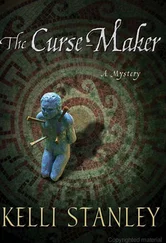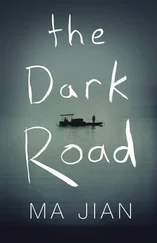After the rape incident, the dog often asked me when the pedestrian flyover would be officially opened. Sometimes I would read out articles for him from the local paper. One night, as the traffic wardens’ voices were booming above the roar of the streets below, I read out an article entitled ‘Good Prospects for the Flyover’. It said: ‘Having received 170 complaints from the public concerning the construction of the flyover, the provincial authorities sent a team to the site yesterday to investigate the problem. The thirteen members of the team promised to assess the situation objectively and reject any bribes or special treatment. They were true to their word. After they arrived at the train station, they declined the use of the limousines sent by the municipal Party committee and chose instead to travel to the site by public bus. The crowds they met along the way approved of their frugal and upright attitude. When they reached the site, the team enquired about the number of traffic incidents that have occurred under the flyover this month. They visited the newly established rescue centre and arranged for a doctor who neglected to deal with the dislocated shoulder of a crash victim to be sent away for interrogation. In their final report, the team pointed out that the political study meetings held in the rescue centre on Monday, Wednesday and Friday afternoons create severe disruptions to medical care, and they suggested that this matter should be looked into …’
‘It seems that the investigation team has solved many problems,’ I said, looking up from the page.
‘If they hadn’t built that flyover in the first place, there would never have been so many accidents,’ the dog complained.
‘At least the municipal authorities are working hard to put matters right.’
‘Surely they realise that the only way to solve this problem now is to hurry up and open the flyover to the public.’
Did he really imagine that the municipal Party committee had the power to decide when the flyover was to be opened? He was so naive. Only the Central Committee can make such decisions. And they’re responsible for running the entire country — they have far more pressing issues to think about than solving our pedestrian flyover problem.
‘Don’t you understand the difference between the higher echelons and the people?’ I said. ‘Would dogs ever dare question their superiors? Your arrogance is monstrous. Our leaders built the flyover to relieve congestion. How dare you turn things around and claim they are to blame for today’s traffic problems?’
‘You lead a miserable life. It’s not much better than a dog’s.’
‘Don’t you know that the more miserable you are, the longer you live?’ I said, exasperated by his ignorance.
The survivor always enjoyed feasting his eyes on the accidents that took place on the streets below. He once predicted that over three hundred people a year would die in traffic incidents caused by the construction of the pedestrian flyover. Never in my life will I forgive him this mistake. Admittedly, in the early days, the construction of the flyover did indeed lead to a dramatic increase in road casualties. Pedestrians would flock to it, hoping to make a safe crossing, but on finding it wasn’t yet open to the public, they would end up charging across the intersection at its busiest point. The survivor told me he could see the ghosts of the dead flitting between the flyover’s concrete legs.
But after the rape incident, the town leaders took steps to ease the problem. They erected metal huts on the flyover to house a medical rescue centre. Anyone injured in an accident below is promptly carried to the rescue hut and given free emergency care. The scheme has been a great success. The municipal Party committee has praised the nurses’ contribution to revolutionary humanitarianism, and awarded them prizes and certificates of merit. Although citizens are still denied the pleasure of using the flyover to cross the street, and people continue to be crushed to death by the busy traffic, the flyover still has its merits. When my classmate broke his leg at work, he managed to get it bandaged free of charge in the flyover’s rescue centre. I often visit the survivor in the museum to tell him of the great progress that has been made, but I have to make sure my colleagues aren’t watching — they are always making jokes about me. One time they saw me tuck into a meat pie at lunch, and they said, ‘Be careful, that’s dog meat.’ I felt queasy for days after that.
When he was alive, the survivor prophesied that the flyover wouldn’t open to the public until 1992, but there’s still a year and a half to go, and there are already signs that the official opening will take place soon: the flyover curfew officers have been replaced by a flyover management team, and the local traffic wardens have been issued with brand-new uniforms.
The flyover was originally scheduled to be opened last year, on the first anniversary of the dog’s death. The Central Committee wanted to make the flyover a symbol of the Open Door Policy. They decided its opening should be tied in with Ceau  escu’s visit to China, and that it should be named the Sino-Romanian Friendship Flyover. They instructed the town leaders to take great pains to ensure the opening was a success. The authorities decked the railings with little red flags, in preparation for the arrival of Ceau
escu’s visit to China, and that it should be named the Sino-Romanian Friendship Flyover. They instructed the town leaders to take great pains to ensure the opening was a success. The authorities decked the railings with little red flags, in preparation for the arrival of Ceau  escu, who had been invited to open the flyover during a visit organised to celebrate the twinning of this town with an industrial city in his country. The government sent engineers to the site to search for any hidden bombs, and plain-clothed security officers patrolled the surrounding streets to check that no one was pasting counterrevolutionary flyers to the walls. But unfortunately, Ceau
escu, who had been invited to open the flyover during a visit organised to celebrate the twinning of this town with an industrial city in his country. The government sent engineers to the site to search for any hidden bombs, and plain-clothed security officers patrolled the surrounding streets to check that no one was pasting counterrevolutionary flyers to the walls. But unfortunately, Ceau  escu was assassinated a few days before he was due to leave, so the ceremony had to be called off.
escu was assassinated a few days before he was due to leave, so the ceremony had to be called off.
When the Campaign to Learn from Lei Feng was launched, a broadcasting cabin was built on the flyover next to the metal huts, and every citizen in town who couldn’t afford to buy a radio jumped with joy. People were able to stand in the streets and listen to the broadcasts for free. They could hear revolutionary songs, programmes from the Chinese Peoples’ Television Broadcasting Company and even international weather reports.
During those months, the streets were filled with people making desperate attempts to emulate Lei Feng. They kept their eyes peeled at all times, searching for a chance to perform a good deed. You only had to trip over a kerb, or carry a heavy-looking bag, and someone would charge forward to offer to help. And there was no chance of you ever losing anything. One day, a pencil dropped from my pocket, and before I knew it, three children rushed over, picked it up and said, ‘Uncle, you’ve lost something,’ then smiled sweetly and gave a Young Pioneer salute. I took the pencil from them and said, just as the newspaper told us to: ‘Thank you, young comrades. You are real little Lei Fengs.’
‘Don’t mention it,’ they piped in unison. ‘We’re only doing our duty.’
‘Tell me, which school are you from? I would like to inform your headmaster of your exemplary behaviour.’
‘A person who performs good deeds should never leave their name,’ they chirped, then swung round and ran back to the end of the street to wait for their next prey, just like the Young Pioneers in the propaganda films.
We can all put up with taking the wrong road, but no one can bear reaching a dead end. When the survivor was alive, I was confused about everything — including him. I had lost my way. But after he died, I found I had nowhere to go. There was no hope left for me, nothing to look forward to. He had destroyed everything I believed in.
Читать дальше

 escu’s visit to China, and that it should be named the Sino-Romanian Friendship Flyover. They instructed the town leaders to take great pains to ensure the opening was a success. The authorities decked the railings with little red flags, in preparation for the arrival of Ceau
escu’s visit to China, and that it should be named the Sino-Romanian Friendship Flyover. They instructed the town leaders to take great pains to ensure the opening was a success. The authorities decked the railings with little red flags, in preparation for the arrival of Ceau 










